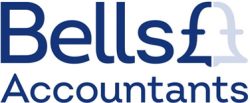
If you are taking the first steps towards setting up your business, preparation is everything. That includes your business plan. This will help you to develop long-term goals and objectives and identify the first steps to get your business off the ground.
A business plan includes:
- A description of your target market
- Competitor analysis
- A cash flow forecast.
Creating a structured plan can provide stability and help track the progress of your small business as it grows.
Why do you need a business plan?
Market analysis
Know your market. Identify your competitors and their marketing strategies to see what works and what doesn’t. Analyse the methods they have used to gain a foothold in the market.
You also need to know your audience, the people who will, potentially, buy your products or services. Know what they want and ensure that there is a need for what you’re offering.
Understanding what others have done can help you to put the building blocks in place for long-term success.
Cash flow forecast
One of the main features of a successful business plan is a cash flow forecast. Plan your income and outgoings so you know what targets you need to achieve to cover all your business expenses, and budget for the future.
Track your cash flow closely in the first few months to monitor whether things are going to plan and measure if you’re on course to hit targets.
Attracting employees and investors
When it’s time to recruit new employees or hire contractors to work for you, your business plans is the framework that will create confidence. If they can see the clear path that you have set out for the business it will help them to buy into your vision of the future.
A clear set of goals will motivate them to work with more focus and help you to achieve these targets. If they are in a sales role and there are incentives for them to do reach the sales goals, they’ll be more invested.
If you’re looking to attract potential angel investors, venture capitalists or even asking your bank for credit, a sound business plan is essential.
Planning for the future
A business plan is more than creating a cash flow forecast, it also plays a major role in planning for all aspects of your business future. For example, you can set a target of how many employees you hope to take on in your first year or lay out your marketing plan to help your product reach its intended audience.
Having targets to aim for means you can have the next steps planned out, regardless of whether you succeed or fail. You can feel well prepared for any possibility and have a back-up plan drawn up to deal with unexpected results.
You can find business plan templates to get you started with the process on the gov.uk website.
Business plans are like road maps, helping small business owners to navigate the early stages of running their own business and being well prepared for any possibility.


Anna Young works at Bells Accountants and can offer start-up advice to help you take these first steps. You can contact her on 020 8468 1087 or email enquiries@bellsaccountants.co.uk


